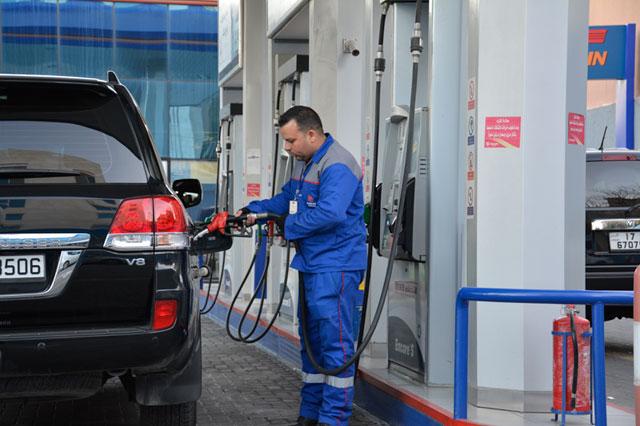You are here
Debts owed to Jordan Petroleum Refinery Co. near JD1.1 billion
By Petra - Aug 16,2014 - Last updated at Aug 16,2014
AMMAN — Cumulative debts owed to Jordan Petroleum Refinery Company (JPRC) reached JD1.07 billion.
JPRC Chief Executive Officer Abdel Karim Alawin told Energy Minister Mohammad Hamed that National Electric Power company (NEPCO) and Royal Jordanian were the main debtors among other institutions which have not paid anything for more than one year.
Alawin was giving a presentation to Hamed who on Saturday visited the company to check on its operations and future projects.
JPRC’s chief warned that unless the government formulates a reformed subsidy structure for gas and petroleum derivatives, and rectifies the issue of debt accumulation, the operations of the refinery will be greatly hampered.
Alawin indicated JPRC refines 14,000 barrels of light Arab oil daily, noting that the maintenance, replacing reactors and developing work systems are continuing in line with building new reservoirs for liquefied gas with a capacity of 8,000 tonnes, for petrol with capacity of 40,000 cubic metres and plane fuel with a 20,000-litre capacity.
He said JPRC entirely stopped using lead in petrol in 2007, before the oil derivatives market liberalisation, and started installing a unit to extract sulfur from diesel at a cost of 16 million euros, scheduled to operate in the fourth quarter of 2014.
He added that Jordan’s imports of crude oil and its derivatives during the first half of this year increased to 3.8 million tonnes compared with 3 million tonnes during the same period in 2013.
The Kingdom’s consumption of diesel increased by 34.1 per cent, reaching 1.7 million tonnes compared with 1.2 million tonnes during the same comparison period, around 54.4 per cent of which were consumed by NEPCO.
JPRC’s data, Alawin said, showed that fuel oil consumption increased by 9.7 per cent, rising from 823,000 tonnes to 903,000 tonnes during the same period, mostly for generating electricity purposes at about 86.5 per cent of the total amount.
Costs of oil imports cost rose by 21.8 per cent reaching JD2.3 billion compared with JD1.9 billion during the same period.
Regarding the expansion, he said there are three alternatives: The first entails adding some facilities to the refinery to produce a lead-free petrol in a way other than the current one and improving the quality of diesel at a cost of $400 million.
The second alternative is a limited expansion to the current refinery to improve the quality of the products and transforming heavy fuel at an expected cost of $900 - $1,100 million.
According to Alawin, the third alternative is a comprehensive expansion to increase production, develop the quantity and transform heavy fuel at an investment of $2 billion to meet the full needs of the Kingdom’s oil.
Hamed said the stop of supplies of the Egyptian gas largely contributed to increasing the oil bill in addition to the halt of the Iraqi oil since the end of 2013.
Related Articles
The Jordan Petroleum Refinery Company (JPRC) on Monday selected Ernst and Young Company (EY) as its financial adviser to present the best alternatives and options for the fourth expansion project.
Debts owed to the Jordan Petroleum Refinery Company (JPRC) total around JD811 million, its CEO said Wednesday.
AMMAN — Allowing the private sector to import diesel is the first step towards full liberalisation of the local market, Energy Minister Ibra

















